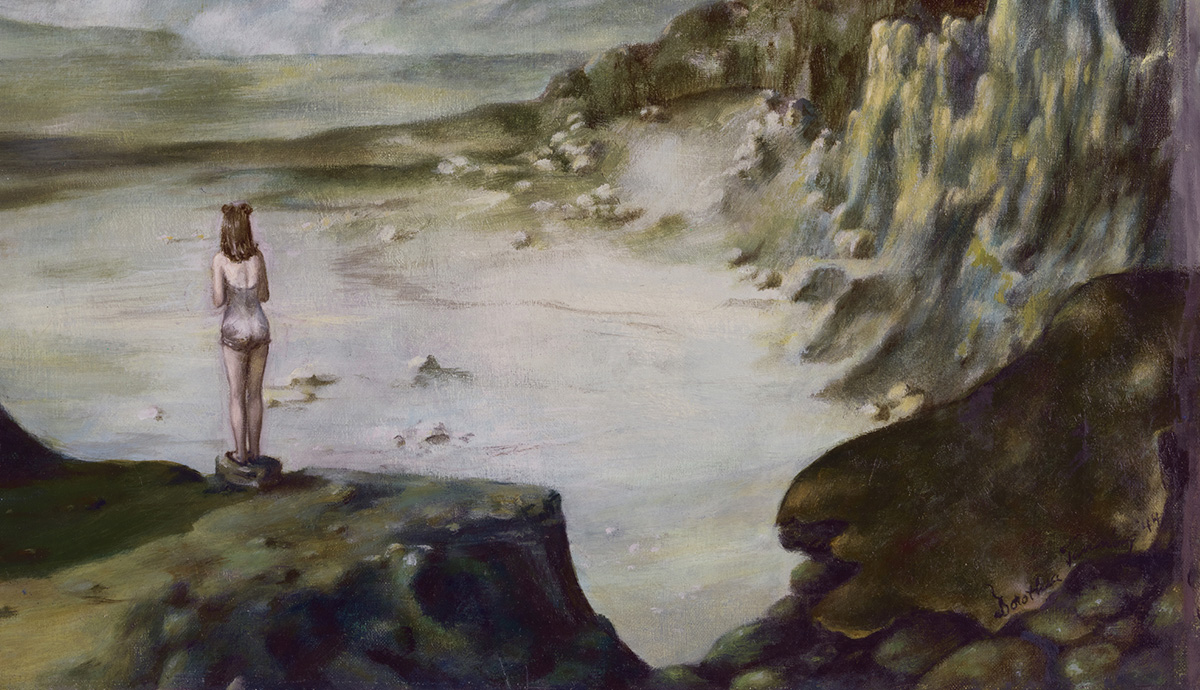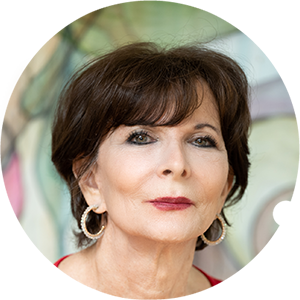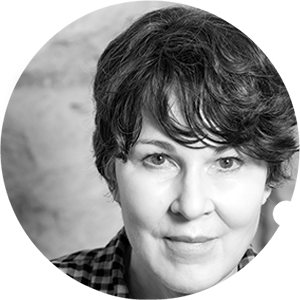In writing my psychoanalytic study of elegy, The Poetry of Loss: Romantic and Contemporary Elegies (2023), I was particularly captivated by the moving expression of loss found in Mary Jo Bang’s award-winning Elegy (Graywolf, 2007). I marveled at Bang’s poetic mastery, which allows her readers to look along with her into the hollowing sense of emptiness that follows the death of a loved one. Critics of contemporary elegies have worked to reconcile Freud’s 1917 seminal essay “Trauer und Melancholie” (Mourning and Melancholia) with modern conceptualizations of bereavement and internalized loss. There is an overall consensus among scholars that the contemporary elegy reflects the erosion of social and religious rituals that once contextualized private and collective grief. Bang’s contribution is essential to this evolving discourse. In her ninth book of poems, A Film in Which I Play Everyone (Graywolf, 2023), Bang continues her exploration of interiority by considering thought itself, asking vital questions about the self and its nuanced elaboration. Her incisive thinking about art and literature, as well as her stark yet electrifying sense of the historical past makes her one of the most interesting American poets writing today. I was fortunate to have the opportunity to correspond over the past months with Mary Jo Bang. This interview emerged from our correspondence, even as she was immersed in teaching, and in a daunting array of literary and editorial projects. I am grateful to her for taking the time to talk about her life in poetry.
Judith Harris: I read an interview where you mentioned L=A=N=G=U=A=G=E poetry as an influence. I think of that mode as one where the poet allows language to perform its own meaningful role, apart from the poet’s personal intention, and which grants the reader’s response its own interpretive space.
Mary Jo Bang: I was one of many poets in the nineties who were influenced by the L=A=N=G=U=A=G=E poets. I first encountered their work in maybe 1991? I had recently come back from living in London, where I had done a BA in Photography at what was then the Polytechnic of Central London (now Westminster University), and was trying to find work as a photographer while teaching English Comp and Humanities for the Visual Artist at Columbia College in Chicago. I asked Paul Hoover, who had a permanent position there, whether I might sit in on his Advanced Poetry class. I also sat in on his Modernism Class. Through Paul, I learned about New American Writing, the journal he and Maxine Chernoff edited, which showcased work by poets associated with the L=A=N=G=U=A=G=E movement.
Shortly after I moved to NYC in 1993 to do an MFA at Columbia University, I discovered Marjorie Perloff’s Radical Artifice (University of Chicago Press, 1992), which was totally illuminating. I began to understand that all language is ambiguous and that poetic utterance works by exploiting the varying degrees of ambiguity inherent in it. In 1995, Timothy Donnelly and I became the poetry co-editors at Boston Review Magazine. We were interested in opening the magazine up to experimental poets and to those who had been influenced by them. As poetry editors, we read widely, not only books of poems but also book about poetry. Being in the city also meant we could go to readings and events and hear how poems sounded. It was an immersive experience.
JH: And what about the effect of L=A=N=G=U=A=G=E poetry on your own poems?
MJB: When I first began writing in the late eighties, my poems were indebted to a rather narrow received idea of a poem—which was as some quasi-confessional assertion based on personal experience. After reading Perloff and the work of experimental poets, I saw how useful indeterminacy could be. By not tyrannically insisting that the reader read the work in a particular way, but allowing the reader to participate in meaning construction, one could approach complicated subjects without being reductive. I took a great deal of permission from that strategy. I also began to fathom all the various ways in which words encode meaning. As I began to play with those notions, it not only made writing more fun but I felt that by being less obvious, I could actually come closer to saying what I wanted to say. Of course, a reader has to enjoy engaging with work like that. If not, they may feel like they’ve just toppled over into a giant word salad! That’s the chance one takes.
JH: One of the most compelling aspects of your combined works is how you value knowledge and truth—whether it’s historical, scientific, psychological, or philosophical—and how you weave together various discourses within the poem. This, of course, is reflected in your dramatic personas poems where a speaker performs a self. As you have said, quite modestly, “It’s true that I have an active interior life but most poets do. And it’s also true that I become sometimes obsessed with something (The Divine Comedy) or someone (Lucia Moholy)!” Can you expand on that interior life? Were you aware of it as a child, or at a certain point in your education?
MJB: I think I was aware, beginning perhaps at the age of six or seven, that my continual introspection set me apart from everyone around me—my mother, my stepfather, my sister, the relatives or neighbors that came and went. I felt like I was a camera, continually recording the others in an attempt to make some kind of sense of what usually felt inscrutable. I never felt I had a reliable guide since the adults around me were always distracted by one drama or another, financial or existential. I often relied on my sister, who was three years older, for knowledge. I trailed her around as she met up with friends or played softball. But I was never a participant, always an onlooker.
As soon as I learned to read and a bookmobile stopped outside our house, books became a place where I found guides, mirrors, antiheros to embrace or push back against. Every book was a parallel universe and a means of escape from the world and my own pestering thoughts, both of which felt overwhelming. The bonds I forged with the characters in books felt powerful. I suppose I imagined those characters the same way I imagine the speakers in my poems. They speak to me and for me.
The truth is, in art, as in life, mastery is never more than an illusion!
JH: Your most recent book, A Film in Which I Play Everyone, is, in my view, a study of subjectivity: the decentered-self celebrates the joys of inconsistency and the pains and pleasures of knowledge. It seems invested in René Descartes’ “I think, therefore I am,” with all its permutations and questions of doubt. How does the conceit of the “film” work? Am I reading too much into your use of dramatic personas to infer that there is a connection between playing the parts of “everyone” and acting itself?
MJB: I suppose the easiest way to conceptualize the “film” in that book is as the movie of my mind. In that movie, I place people on a set and give them a script. Because there is no one else there (inside my mind), I have to play all the parts. If a sister appears in a poem, she might look like my sister but it’s me, dressed up as my sister. Same with the mother, the same with the singer named David Bowie. I’m playing them all because those “real” people are busy elsewhere, or, as in the case of Bowie and the mother, no longer living. The question is whether my David Bowie, for example, has anything to do with the now-deceased singer? They do share some particulars, both sing “Do you like girls or boys,” a line from “Hallo Spaceboy,” the sixth track on Bowie’s 1995 album Outside.
JH: In your award-winning book-length elegy, Elegy (Graywolf, 2007), poems written after the death of your son, the speaker is of two minds when communicating with the deceased. In the poem “She Remembers His Hat,” you write, “You are now / only an aspect / of my brain . . . a state of loose coherence / / in the theater of the skull.” The paradox is that the gone one is both present and absent. His absence resides in the brain and in the “ash box” (a trope that you use in a number of poems in that book), which I imagine to be the unconscious. How does mourning help us to recover from a traumatic loss? Could you talk about loss—from any number of perspectives, personal, philosophical, literary, or even religious? So many poets talk about loss being fundamental to their writing.
MJB: I would never presume to know anything about anyone’s experience of loss outside of my own. And even my own experience is almost unfathomable to me. Perhaps that’s why there are so many attempts—by, as you say, philosophers, writers, and religious leaders—to say something that will have general relevance. In terms of how mourning helps one to recover, I don’t know that it does. I think of mourning as involuntary, a sadness that competes with every other aspect of life and wins. One doesn’t recover from that. If you’re lucky, the other aspects of life distract you, sometimes briefly, sometimes for a longer period. The best description I have ever read of mourning is the end of Gerard Manley Hopkins’ poem, “Spelt from Sibyl’s Leaves”: “a rack / Where, selfwrung, selfstrung, sheathe- and shelterless, thóughts against thoughts ín groans grínd.”
JH: The elegist’s recognition of death manifests as a rupture or “breaking” in the language—words won’t suffice but they are all that we have. Metaphorically, the dead’s continuance is through language. At the end of the poem “The Role of Elegy,” the speaker says, “What is left but this: / The compulsion to tell.” Is the compulsion to tell something that is relevant not only to that elegy but to all of your poetry?
MJB: I think most art-making is born of a compulsion-like impulse. The artist feels compelled to abandon the so-called real world, where they feel they have very little control, in order to enter an alternative world, a place not unlike Lewis Carroll’s Wonderland. In that strange new world, the artist hopes that by giving up any modicum of control they may have had, they will actually gain some control, if only over the art they’re making. The truth is, in art, as in life, mastery is never more than an illusion!
JH: I am interested in the magic of your translations—so much of it may be detective work, but a great deal of it is word choice, music, and aesthetic comingling with the poet’s intention. Is there ever a moment in which you think to yourself: “yes, I got it just right”? Do you sometimes have imaginary dialogues with those you are translating even if, as with Dante, you are going back to the fourteenth century in Italy?
MJB: When I was translating Inferno, I did sometimes imagine Dante, and wonder how he might feel about the decisions I was making. There were the very basic questions, like whether he would approve of my decision to forego his terza rima rhyme scheme, which he’d invented specifically for the poem in order to represent the Triune God (Father, Son, Holy Spirit). I also wondered how he might feel about the fact that I was translating his medieval Tuscan Italian into colloquial English. I’d find myself “explaining” my choices to him! Of course, he always remained silent. In time, I realized I couldn’t look to the dead poet for reassurance, I was going to have to be as resolute a translator as he was a poet. In terms of getting things “just right,” that’s a malleable sense. What feels just right today, might seem not quite right, or even wrong, tomorrow. Once the work is published, however, you stop obsessing about it by finding a new translation project!
JH: Finally, could you speak about your role as a teacher—a professor at Washington University in St. Louis—and what your pedagogical focus is? And even more important, what do you delight in when interacting with students who are not only your students at the university, but people like me, who have enjoyed a correspondence about poetry with you.
MJB: I think my focus in teaching poetry has always been to share everything I’ve learned about poetry, from my teachers, from reading, from talking to people who know much more than I do, from having written it now for many years, with anyone who is interested. I urge my students to think about the fact that it’s difficult to convince anyone to read a poem. There are so many other things to do—pleasant things like eating and sleeping, listening to music, going for a walk—and less pleasant, but necessary, things, like dealing with the horrors of the past as well as the horrors happening around us, both near and far—which is what being a good citizen means. We can’t bury our heads in the sand. Or in a book. I try to be useful to people who write outside of MFA programs because I was once in that position and I know how grateful I was when someone took the time to teach me something. I suppose what I delight in most is when my students add their own inimitable way of writing to whatever I’ve taught them, so that the final product is theirs and theirs alone. That makes me very happy.




